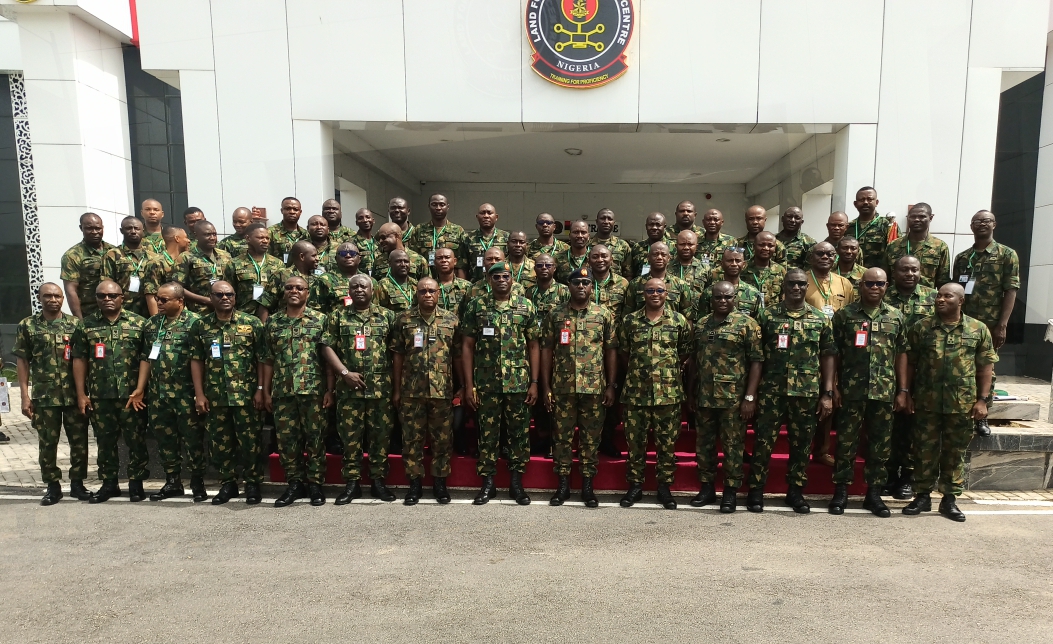The Chief of Army Staff (COAS), Lt.-Gen. Taoreed Lagbaja, says a combat ready Nigerian Army requires effective training using emerging technologies such as Artificial Intelligence, robotics, genome sequencing and other software applications.
Lagbaja, who was represented by the Chief of Special Services and Programmes (Army), Maj.-Gen. Henry Wesley, said this at the opening of the Simulation Workshop of the Land Forces Simulation Centre Nigeria (LFSCN), on Tuesday in Abuja.
The theme of the workshop is, “Effective use of Simulation Technology to Enhance Nigerian Army Operation in a Joint Environment.”
He said the theme reflected his Command Philosophy for the Nigerian army which is, “To Transform the Nigerian Army into a Well-trained, Equipped and Highly Motivated Force Towards Achieving our Constitutional Responsibilities within a Joint Environment.
“A Nigerian Army that is always combat ready can only be achieved through effective training using emerging technologies such as Artificial Intelligence, robotics, genome sequencing and other even as they come software applications.
“Simulation training which involves the application of these technologies is thus a contemporary essential enabler for preparing Nigerian army personnel for current and future operational challenges.
“It is reassuring to say that in this regard, the centre has justified the purpose for which it was conceived and established.”
Lagbaja said he had approved the equipping of the centre with all the hardware and software essential to its efficiency.
He added that approval had also been given for the procurement of two 10 Lane Virtual Firing Range, a 100-KVA solar-inverters with lithium batteries as well as Aluminum Composite External Cladding for this Centre, to enhance its aesthetics.
He added that his overall goal was to make the centre a one-stop shop for all operations planning training in the Nigerian army in both peace time and during war.
According to him, the simulation centre is now well and sufficiently equipped to carry out simulation training for all combat arms, combat support arms and combat support services of the Nigerian Army.
“Battle Simulation Centres such as this help trainers to formulate training models by testing their operations planning and theories without expending scarce live ammunition, manpower fatique and the requirement for operational logistics supplies, especially in a dwindling economy.
“It is my firm belief that ultimately, the Centre would not only enhance the Nigerian Army training and operational readiness but also provide training support to our sister services, other security agencies, Ministries Departments and Agencies (MDAs).
“I am delighted to note that the Centre has so far conducted several capacity building programmes in line with the Nigerian Army Forecast of Events 2023, with considerable successes.
“I am aware that the in-house training conducted at the centre has significantly improved the capacity of the new centre staff since their deployment,” he said.
The COAS pledged to continue to support all the efforts of LFSCN within available resources to make it one of the most respected in the world.
The Director General, LFSCN, Maj.-Gen. Usman Yusuf, said the centre had since its establishment in 2019 made concerted efforts to provide the necessary hardware and software to make it functional and a centre of excellence.
Yusuf said the centre was being ranked among the best simulation training centres in sub-Saharan Africa and in the world, owing to the necessary support provided it to function optimally.
He said LFSCN had so far held in-house simulation exercise, four battalion simulation exercises, three brigade simulation exercises and three joint simulation exercises.
According to him, the centre conducted seminars and workshops to enhance the capacity of its staff as well as create awareness within the Nigerian army, sister services, security services, ministries, department agencies and other stakeholders.
(NAN)









